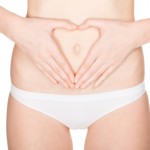Get Guaranteed Weight Loss With Adipex
For most of us the best way to ensure weight loss is dieting. Even after years of trying we don't want to give up on what is our favourite way of losing weight. Very often after dieting we gain even more weight than before. Dieting needs to be understood more thoroughly and done in a systematic and scientific manner. Here are a few myths and misconceptions about dieting
Here are some myths and misconceptions about dieting?.
I don't need a diet - I'll just eat less. It seems logical to assume that you'll automatically lose weight if you eat less, but it's simply not true. think of your body as a machine; when you cut down on the fuel it needs to operate, it runs more slowly; likewise, when you cut down on food, the body slows its metabolism and you burn fewer calories. furthermore, studies show that when dieters consume fewer than 1,200 calories daily, they'll lose muscle tissue as well as fat. (muscle weighs more than fat, but it's more compact.) therefore, even though your scale may register weight loss, it may be at the expense of losing muscle.
I can diet alone - Most people talk about dieting far more often than they do it. Even if you know the appropriate foods and quantities, it's not easy to stick to a diet without someone cheering you on. You're likely to wake up every morning promising yourself to eat according to plan, only to break that promise during the day. Why not join a diet support group or form your own? If you make a promise to your group, your family and yourself, you'll get the encouragement you need.
Never eat between meals - In fact, dietitians strongly recommend eating low-cal munchies such as cucumbers, carrot sticks, defatted soups and rice cakes to tide you over until your next meal. So, if you're a snacker, bring a bag of cut-up veggies to the office to fend off the temptation of the candy machine.
I can eat everything, I want - Just less of it. It seems logical to think that by reducing the amount of food you usually eat you'll shed pounds, but you might be better off eating more of high-fiber, low-fat foods. The reason? The people most concerned about losing weight are usually the same people who like to eat; Consequently, smaller portions will not be satisfying. This eating plan allows you to indulge your desire for large portions.
All calories are equal - On the contrary, your diet won't work if you substitute ice cream for an equally caloric low-fat meal. studies show that calories derived from fat are more fattening than calories derived from carbohydrates and protein. it seems that the body burns calories to convert carbs and protein into fat for storage, where as extra fat calories are stored as is.
Protein is the best diet food - Most of us believe broiled fish and chicken are key weight reducers; however, excess protein is stored as fat. because the dietary requirement of protein for the average woman is just 44 grams, you'll get enough by eating a single, three or four ounce serving of animal protein or legumes daily.
Exercise makes you hungry - If this were true, everyone who exercised would gain weight; in reality, moderate exercise can decrease appetite. What's more, exercise produces weight loss by burning calories. It can even boost your metabolism so you burn more calories than usual.
I can lose weight if I skip breakfast - Breakfast is a must, even if you're not dieting, for energy to begin the day. Try eating a large breakfast, a smaller lunch and an even smaller dinner, or eat small portions six times a day.
Diets won't work - This myth is perpetuated because an estimated 95 percent of those who lose weight on a diet gain it back within one year. All diets work if you follow them correctly, but people fail in the maintenance phase. Don't go back to your old eating habits, but make sure your new diet is not so strict that you can't stick to it.
It is important to exercise. Aerobic exercise achieves the best results for you in terms of overall fitness. Select activities that are moderate in intensity, can be kept up for long periods of time and use large muscle groups. Good examples of aerobic exercise include: walking, rowing, jogging, cycling, swimming and cross-country skiing
Exercise burns calories, burns fat and increases muscle mass. Moderate exercise decreases appetite. Exercise helps reduce stress and depression, common triggers of overeating.
Regular exercise helps reduce high blood pressure and controls cholesterol levels. It also strengthens the heart and helps motivate smokers to quit smoking. Regular weight bearing exercise helps decrease risk of developing osteoporosis. Exercise helps you to sleep better. Regular exercise helps keep your digestive system regular and prevents constipation. Exercise can help persons with arthritis move around more easily.
However only diet or exercise or even a combination of the two require a third X ?factor to work. This third factor is diet pills. These weight loss pills are the best bet to ensure that overeating does not happen. These include Adipex , which contains Phentermine a sympathomimetic amine, which is similar to an amphetamine. It is also known as an "anorectic" or "anorexigenic" drug. Adipex stimulates the central nervous system (nerves and brain), which increases your heart rate and blood pressure and decreases your appetite.Adipex is used as a short-term supplement to diet and exercise in the treatment of obesity.
In fact Phentermine weight loss pills similar to Adipex are easily available online at any of the online pharmacies. With Adipex and an excellent weight loss programme of diet and exercise, weight loss is guaranteed
-
Underactive Thyroid Symptoms and Remedies
Do you constantly feel tired or exhausted despite getting more th
-
Chinese Weight Loss Tea
Chinese tea has been used since the ancient times for its various nutr
-
How Do You Know If You Are Eligible For Weight Loss Surgery?
Obesity has become a serious epidemic in western society. In Ontario i
-
Weight Loss and Green Tea - Useful Facts You Might Not Know
Green tea has been considered by many as
-
Just say no ain't enough to avoid holiday weight gain
The holiday season is coming up fast. For weeks magazines and newsp
-
Permanent Fat Loss
Which is the best exercise to burn fat i
- DON'T MISS
- Learn From Centenarians About Longevity
- Fast Weight Loss The Importance Of Low Bodyfat Levels
- Apprehending The Factors Of Food For Weight Loss In San Diego: Protein
- Weight Loss Fitness And Your Mind Set
- Living With Your Diet
- Review The South Beach Diet Plan
- How To Burn 13 Pounds In 13 Days
- 10 Weight Loss “Rules” You Should NEVER Ignore
- 4 Simple Ways to Stop Food Cravings
- Single-Incision Technique Available for Weight Loss Surgery




